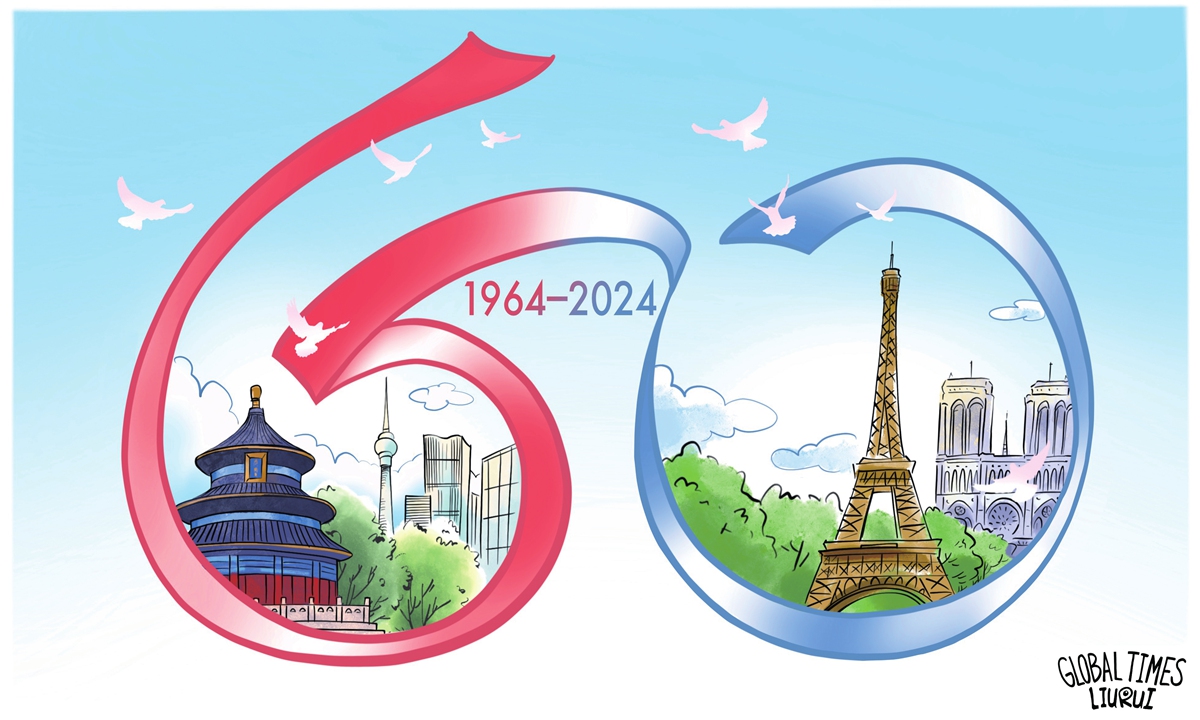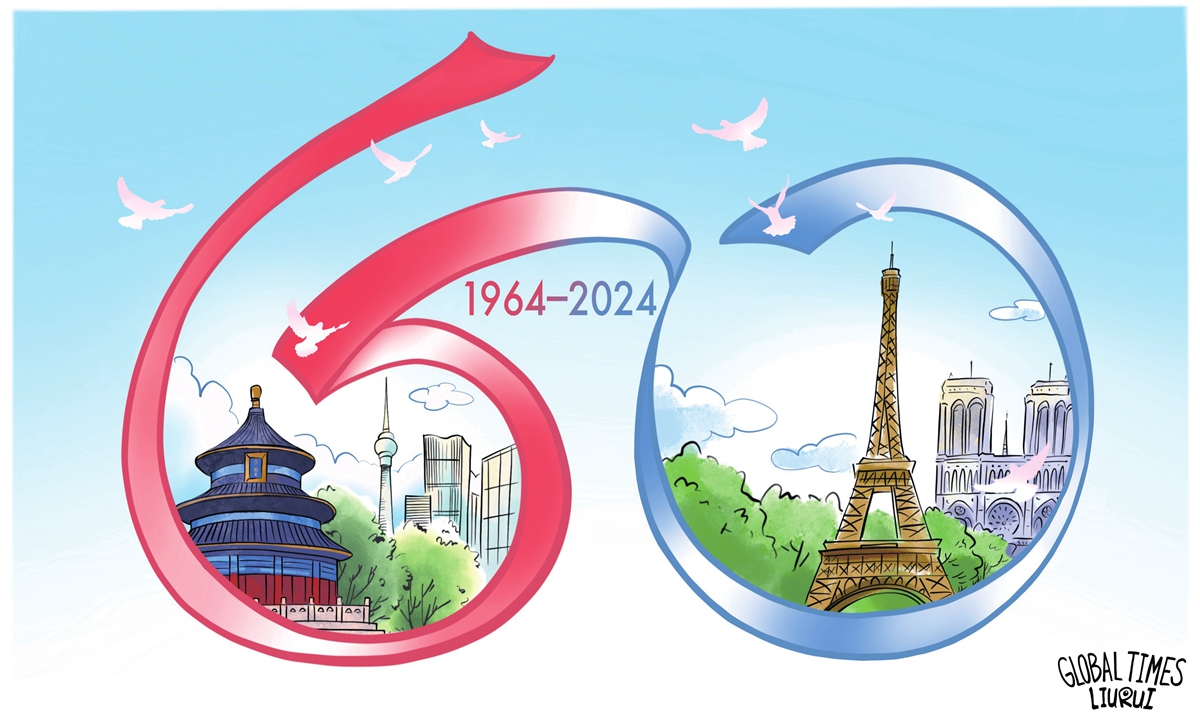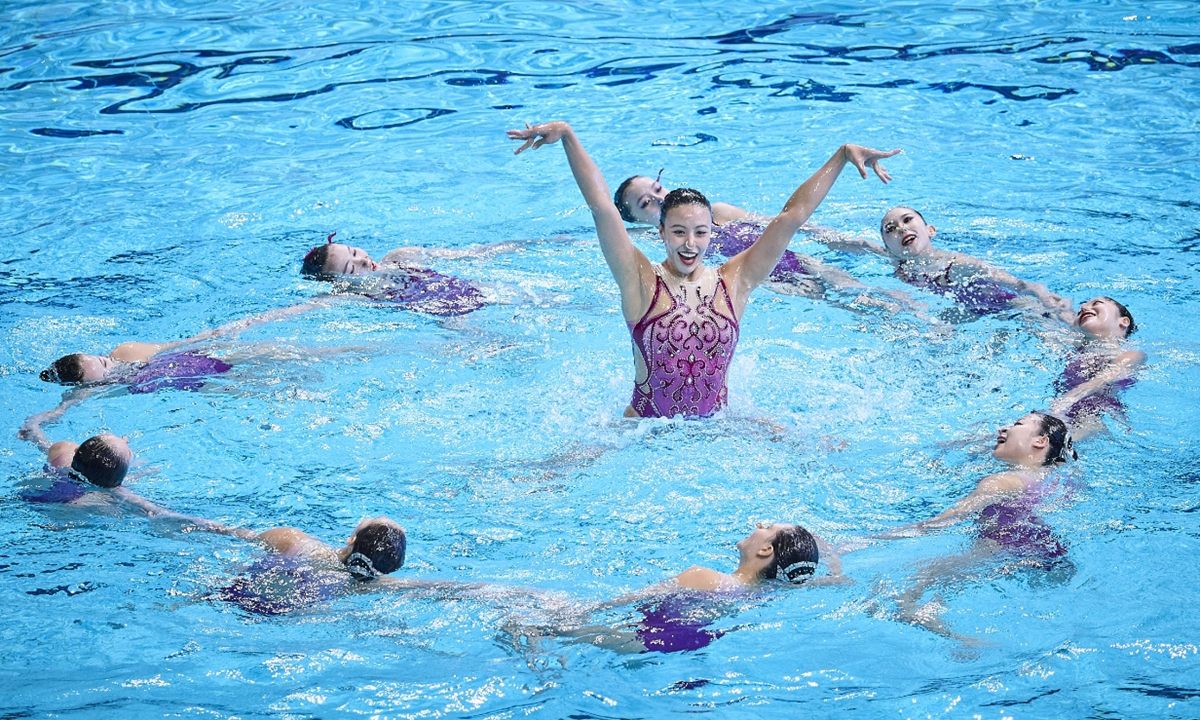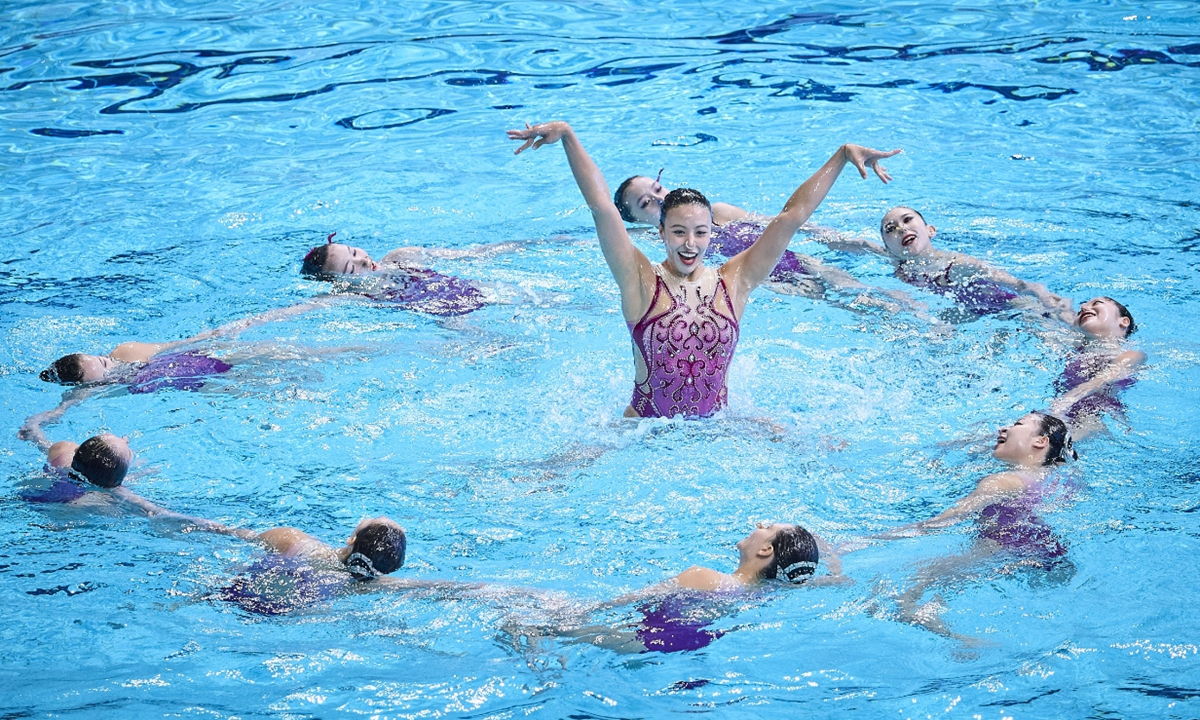
Illustration: Liu Rui/GT
Chinese President Xi Jinping arrived Sunday in Paris for a state visit to France as the first stop of his European trip. He received a grand welcome from the French side. At the same time, President Xi’s written speech upon arrival at Paris Orly airport, the signed article published in French media Le Figaro, and the China-France-EU trilateral meeting with French President Emmanuel Macron and European Commission President Ursula von der Leyen have continued to spark heated discussions in Western public opinion, highlighting the significance of this visit at the bilateral, European and global levels.
President Xi said in his signed article that during his visit to France, he brought with him three messages from China: China will work with France to carry forward the spirit that guided the establishment of their diplomatic ties, build on past achievements and open new vistas for China-France relations; China will open even wider to the world and deepen cooperation with France and other countries; China will strengthen communication and coordination with France to uphold world peace and stability. These three messages not only demonstrate China’s concept of development, security, and civilization in the new era, but also reflect the strategic, epoch-making and global nature of China-France relations in the context of a changing world order.
This year marks the 60th anniversary of the establishment of diplomatic relations between China and France. Sixty years ago, the two countries broke through the icy barriers of the Cold War, bridged the gap between camps, and established ambassadorial-level diplomatic relations, “ripping a slit in an iron plate,” pushing the world toward dialogue and cooperation. Even today, admiration for the strategic vision and broad-mindedness of that generation of leaders remains a common sentiment from top to bottom in both China and France, demonstrating that the strategic direction of the relationship established at that time was correct and stood the test of time. President Xi’s emphasis of carrying forward the spirit that guided the establishment of diplomatic ties, namely the spirit of independence, mutual understanding, foresight, mutual benefit and win-win outcomes, shows that in the face of profound global transformations and uncertainties, it is hoped that the two countries can lead the world back to the right path of cooperation rather than confrontation, to win-win results rather than zero-sum.
We have noticed that from the conflict between Russia and Ukraine to trade disputes, some Western public opinions have previously listed a “to-do list” between China and France. China and France never avoided these issues. Over the past 60 years, the reason why China-France relations have consistently remained at the forefront of China’s relations with Western countries, pioneering many “firsts,” is not because they have not experienced ups and downs, but because they have always focused on the fundamental and long-term interests of both countries and peoples, jointly safeguarded world peace and stability, and promoted human development and progress.
Charles de Gaulle once said at a press conference after the establishment of diplomatic relations between China and France, “France simply recognizes the world as it is.” He firmly believed in the long history of Chinese civilization and emphasized that global development cannot be without China. Today, as China deeply integrates into globalization, just as de Gaulle foresaw, it has a strong willingness and continues to contribute to global development. China’s expansion of high-level openness and deepening cooperation with other countries, including France, is not a forced choice, but a conclusion drawn from our own development experience and a natural result of our development needs. China offers opportunities rather than risks, and seeks cooperation rather than confrontation. As long as one can correctly grasp the main thread of comprehensively understanding China’s development, all problems will be technical and temporary.
France is an influential major power in the Western world, and its influence stems not only from its hard power but also from its longstanding tradition of independence and its unique perspective and vision. The stability and development of China-France relations will become a very prominent case in China’s relations with the West, helping other Western countries to understand China’s foreign policy and the principles China upholds when developing relations with countries of different systems and cultural backgrounds. The stability of China-France relations provides more impetus for China-Europe relations and also helps European countries to understand China in a rational, pragmatic, and objective manner and handle their relations with China accordingly.
France was the first Western power to establish diplomatic relations with China, and China-France relations have always carried the genes of influencing international relations and the world order from the very beginning. Just as President Xi said, “both China and France value independence as two major countries, and our interactions in the long course of history have released tremendous energy swaying the trajectory of the world.” Under the strategic guidance of the two leaders, we look forward to China and France embarking on a new journey for the next 60 years of bilateral relations, constantly making new achievements for global peace and stability as well as human development.


